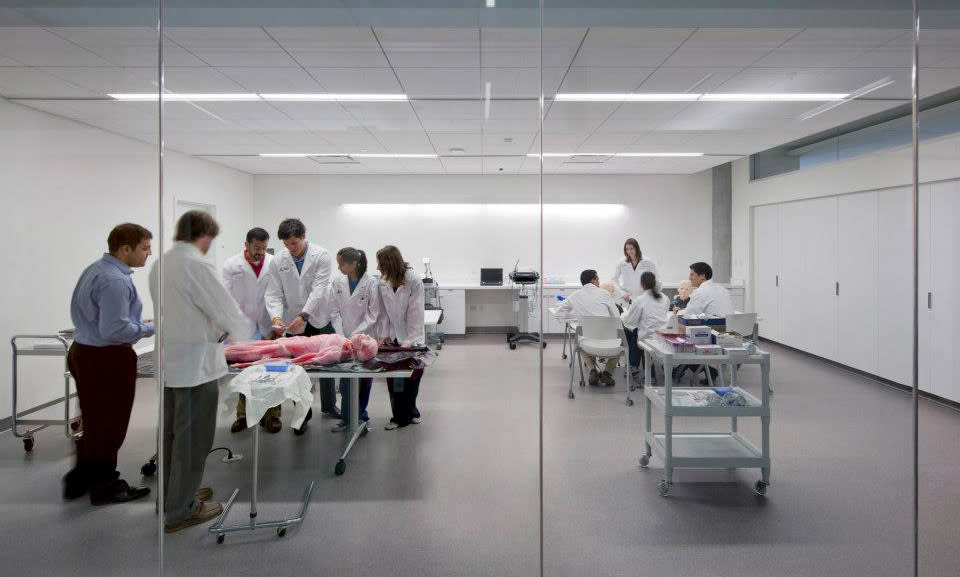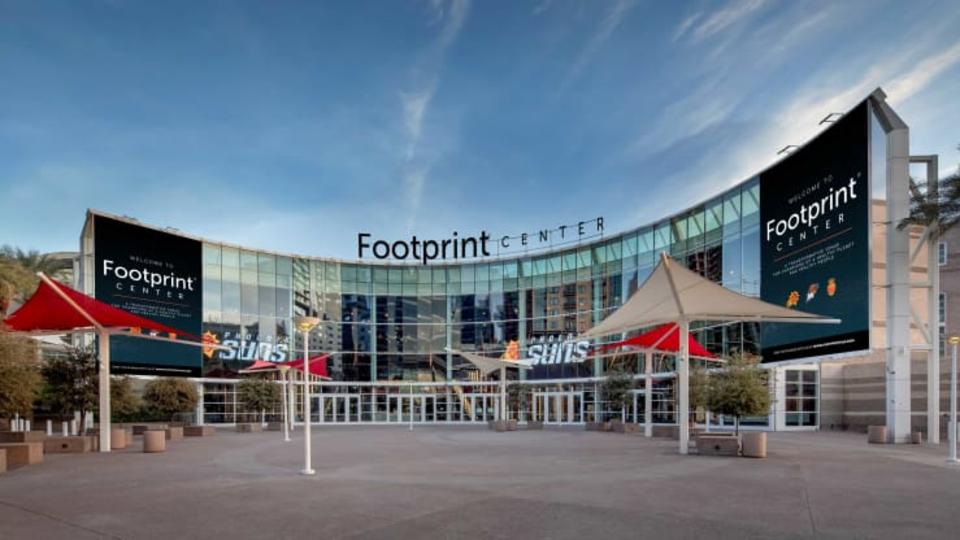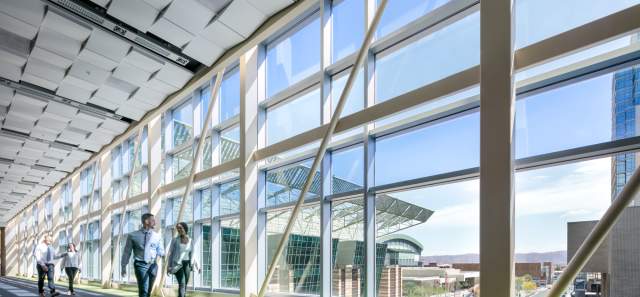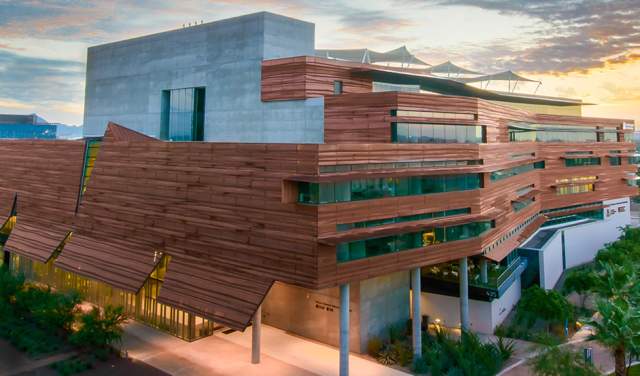Local Intellectual Capital: Meeting Planners’ Secret Weapon
Tap into the local scene to find top-notch speakers and leaders.
With budgets tightening and costs increasing, flying in world-renowned speakers (with first-class tickets and luxury hotel rooms, of course) might no longer make sense for most meeting planners. But that doesn’t mean that meeting value needs to suffer.
Indeed, savvy meeting planners are taking advantage of thought leaders, innovators, trailblazers as well as industry powerhouses — who call an event’s host city home — to give their conferences a local boost. And this isn’t just a matter of budgetary or logistics necessity: Locally sourced intellectual capital — expertise you can tap into to increase the value of the experience—not only makes for dynamic and inspiring meetings, but it will also likely continue to trend well into the future.
 Center for Simulation and Innovation. Photo credit: Phoenix Bioscience Core.
Center for Simulation and Innovation. Photo credit: Phoenix Bioscience Core.
Why It Matters
As is the trend with leisure travel, so goes for meeting travel: The days of arbitrarily dropping a pin in a city and plopping down in a space without connecting to its culture, roots or people are simply out of vogue. An opportunity to connect, something we’re all hungry for, in a meaningful way — whether it’s through speakers, entertainers, tastemakers, executives or other pros—can be very enticing. Choosing a destination that offers a wide variety of experts who can add to your meeting’s specific content makes sense from multiple perspectives.
“Every big, sophisticated metropolitan area has unique individuals that have stories to tell, and you’re not going to get those if you’re someplace else,” explains David Krietor, executive director for the Phoenix Bioscience Core (pictured above). Ideally, he says, there will be a salient nexus between the content of the meeting and that city’s intellectual capital.
Consider Phoenix, the country’s fifth-largest city and also among the top emerging markets for bioscience in the U.S. The Phoenix Bioscience Core, which is directly adjacent to all of Phoenix’s major convention facilities, may just be the center of much of that growth. “There have been really dramatic changes and there is a treasure trove of opportunities here,” Krietor explains.
Krietor notes that the simulation labs on campus provide endless stimulation and inspiration for meeting attendees engaged in relevant pursuits. “People love to visit and just watch what’s going on,” he says. “They see these simulation mannequins and other artificial intelligence-aided devices and how they interact with a doctor who’s learning how to provide medical care. It’s exposing people to things that are all new to them, and that can be very inspiring.”
 Footprint Center. Photo credit: Suns Legacy Partners & Footprint.
Footprint Center. Photo credit: Suns Legacy Partners & Footprint.
It’s All About Location
Planners know that choosing the right destination can make or break a guest list. It’s important to identify locations that inspire your audience in organic ways. That’s another characteristic that sets a place like Greater Phoenix apart, it’s not known for, or exceptional at, just one thing. Depending on what you are looking to dial into, there’s a tremendous amount of local pride — and intellectual capital across many disciplines — ready to meet you.
In the tech arena, Phoenix is an emerging hub of innovative activity with a robust ecosystem of technology and software companies. For example, about a dozen electric vehicle companies have expanded major operations (currently or planned) throughout Arizona. The same is true for Taiwan Semiconductor Manufacturing Co. — responsible for 24 percent of the world’s semiconductor output in 2020—which is expanding into Phoenix with a chip fabrication plant.
Sports also lend themselves to a winning atmosphere. In 2021, both the NBA’s Suns and the WNBA’s Mercury hosted The Finals in downtown’s recently overhauled Footprint Center. Founded by former Intel managers, Footprint is a plant-based fiber technology and material science operation that aims to replace short-term plastic use for a healthier planet.
Tapping into unique local venues can also offer access to experts with one-of-a-kind perspectives. Phoenix is home court to Ability360 Sports & Fitness Center. This state-of-the-art facility is a leader in adaptive technology that provides innovative approaches to inclusive health, fitness and recreation programs to Paralympic athletes, military veterans and individuals with disabilities. It also serves as a hub for sports medicine experts, coaches and world-renowned athletes.
Identify Intellectual Capital in Your Host City
Reaching out to the convention and visitor bureaus and destination marketing organizations is a great way to discover the readily available intellectual capital in a host city.
Krietor explains that local thought leaders and experts understand the reciprocal value of these meetings of the mind and often forge these relationships with intention. “The [Phoenix Bioscience Core] prioritizes making a personal connection between the education and research and entrepreneurial activity that’s occurring on campus and the meeting and convention authorities,” he says. “And since those relationships are established, we can easily transition those to supporting our meeting and convention business.”
When planners don’t make the effort to engage local resources, to seek out local experts or to tap into the richness of local knowledge, Krietor says, both planners and attendees could potentially be “missing out on assets that could be differentiators,” both in that moment as well as down the road.
This story was written and published by Associations Now. For more meetings trends in Phoenix, visit AssociationsNow.com.




